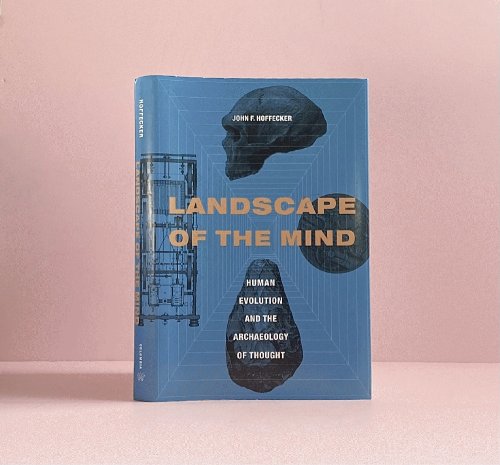
Landscape of the Mind: Human Evolution and the Archaeology of Thought
$24.00 USD • Used
A very clean and straight copy in like dust jacket. 259 pp....
Store: boredombooks [View Items]
A very clean and straight copy in like dust jacket. 259 pp.
From Publisher:
In Landscape of the Mind, John F. Hoffecker explores the origin and growth of the human mind, drawing on archaeology, history, and the fossil record. He suggests that, as an indirect result of bipedal locomotion, early humans developed a feedback relationship among their hands, brains, and tools that evolved into the capacity to externalize thoughts in the form of shaped stone objects. When anatomically modern humans evolved a parallel capacity to externalize thoughts as symbolic language, individual brains within social groups became integrated into a "neocortical Internet," or super-brain, giving birth to the mind.
Noting that archaeological traces of symbolism coincide with evidence of the ability to generate novel technology, Hoffecker contends that human creativity, as well as higher order consciousness, is a product of the superbrain. He equates the subsequent growth of the mind with human history, which began in Africa more than 50,000 years ago. As anatomically modern humans spread across the globe, adapting to a variety of climates and habitats, they redesigned themselves technologically and created alternative realities through tools, language, and art. Hoffecker connects the rise of civilization to a hierarchical reorganization of the super-brain, triggered by explosive population growth. Subsequent human history reflects to varying degrees the suppression of the mind's creative powers by the rigid hierarchies of nationstates and empires, constraining the further accumulation of knowledge. The modern world emerged after 1200 from the fragments of the Roman Empire, whose collapse had eliminated a central authority that could thwart innovation. Hoffecker concludes with speculation about the possibility of artificial intelligence and the consequences of a mind liberated from its organic antecedents to exist in an independent, nonbiological form.Product Info
ISBN: 023114704X
ISBN-13: 9780231147040
Publisher: Columbia University Press
Year: 2011
Type: Used
Binding: Hardcover
Seller Info
boredombooks
Address: plane of immanence Portland, Oregon
Website: https://www.boredombooks.com
Country: United States

